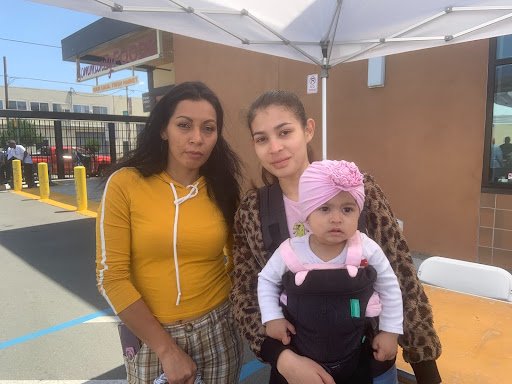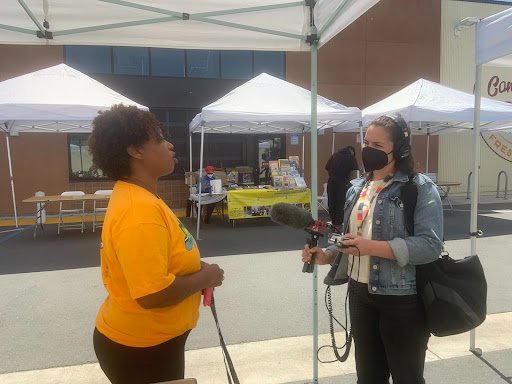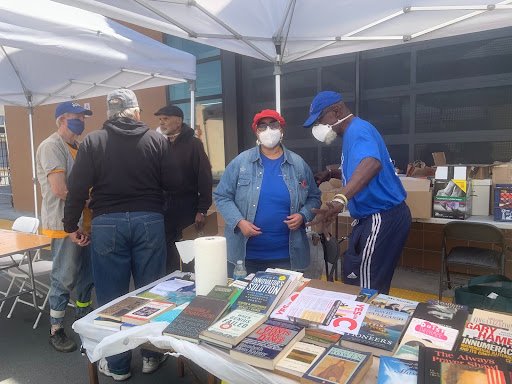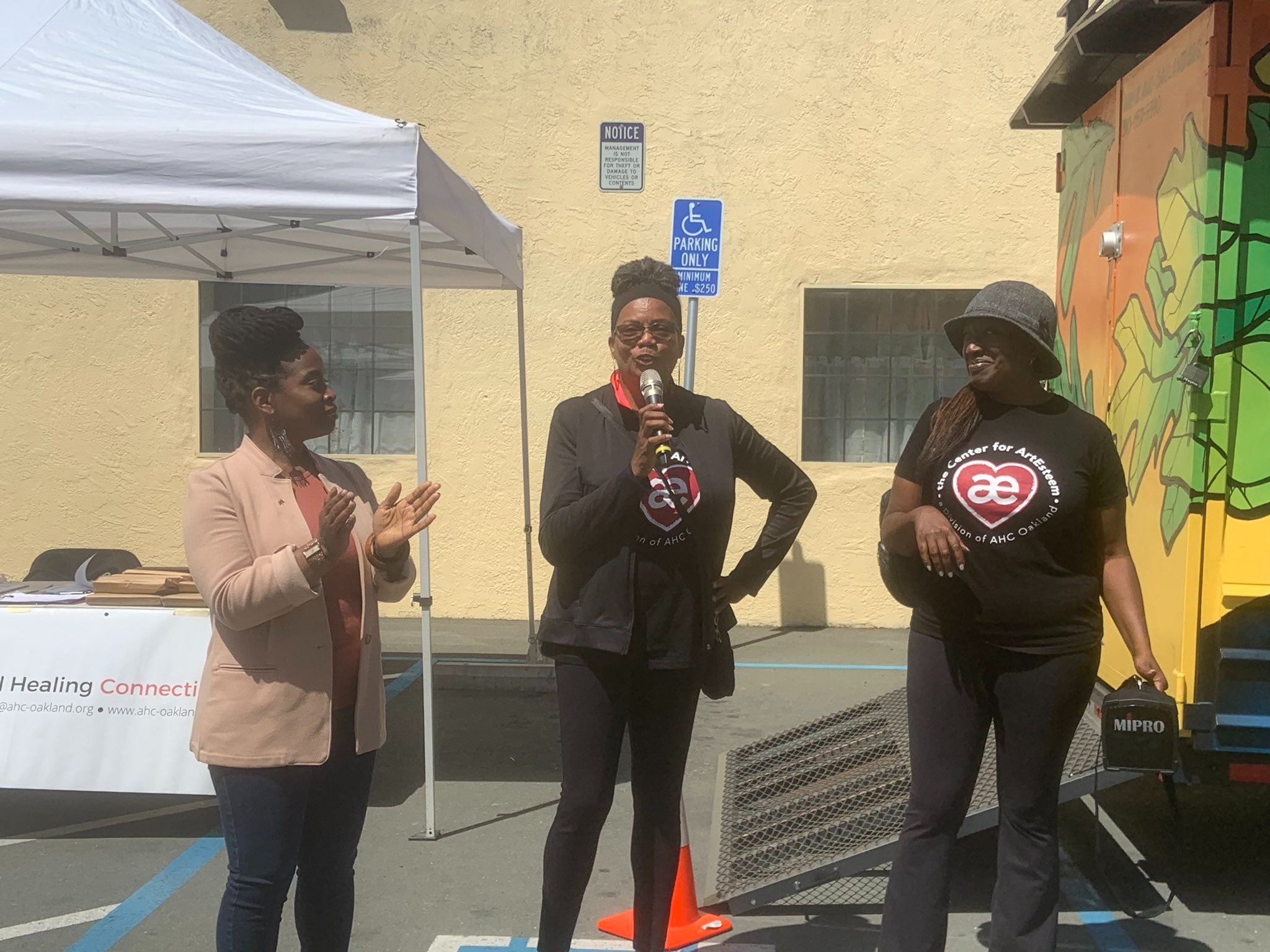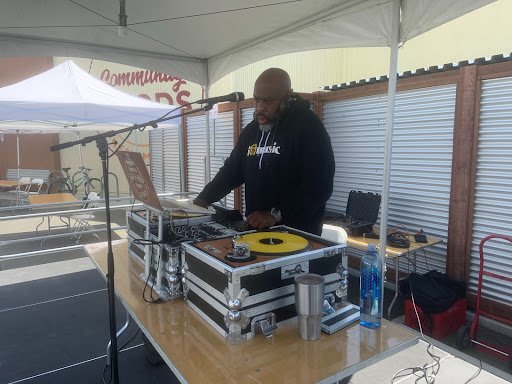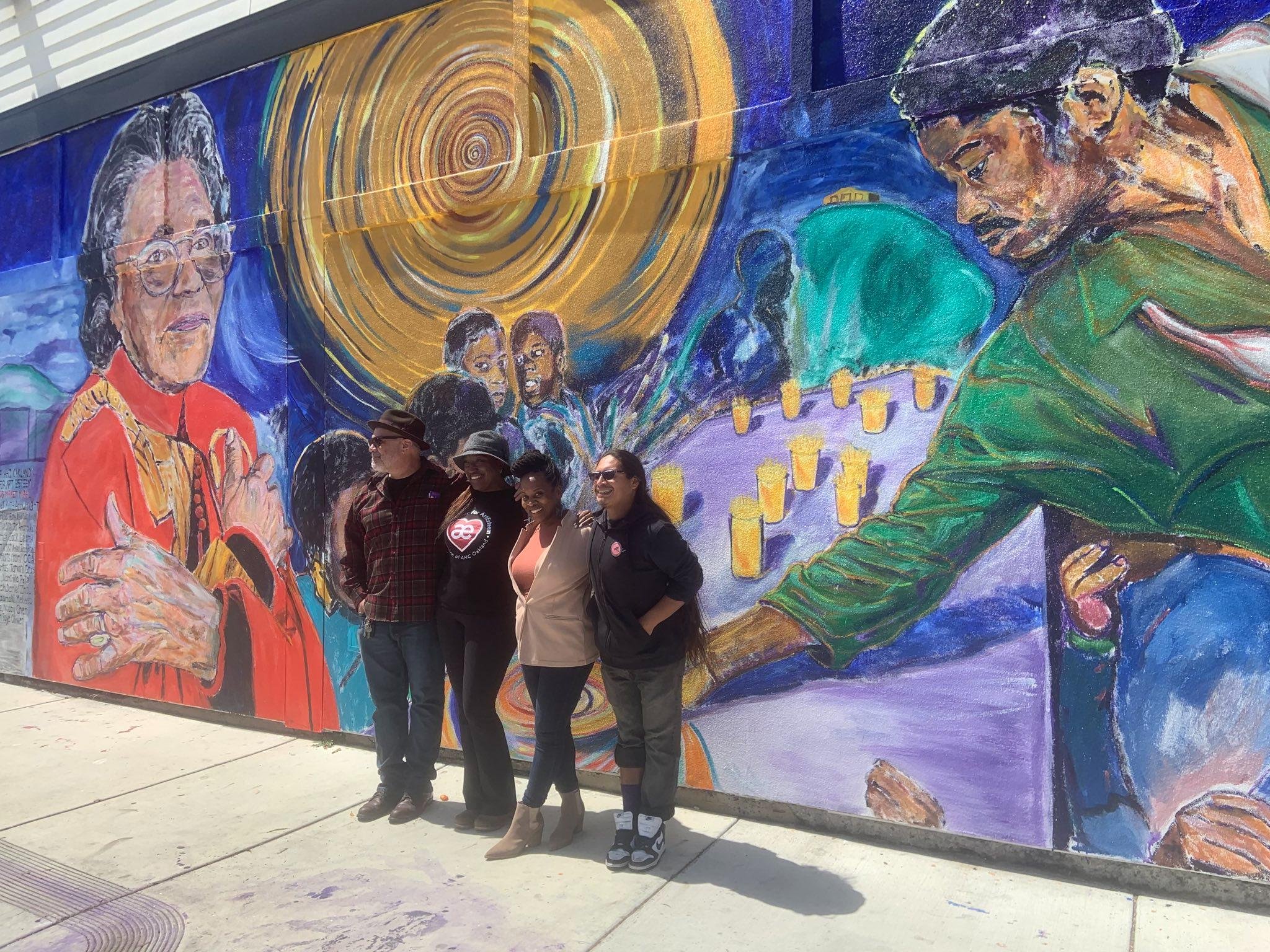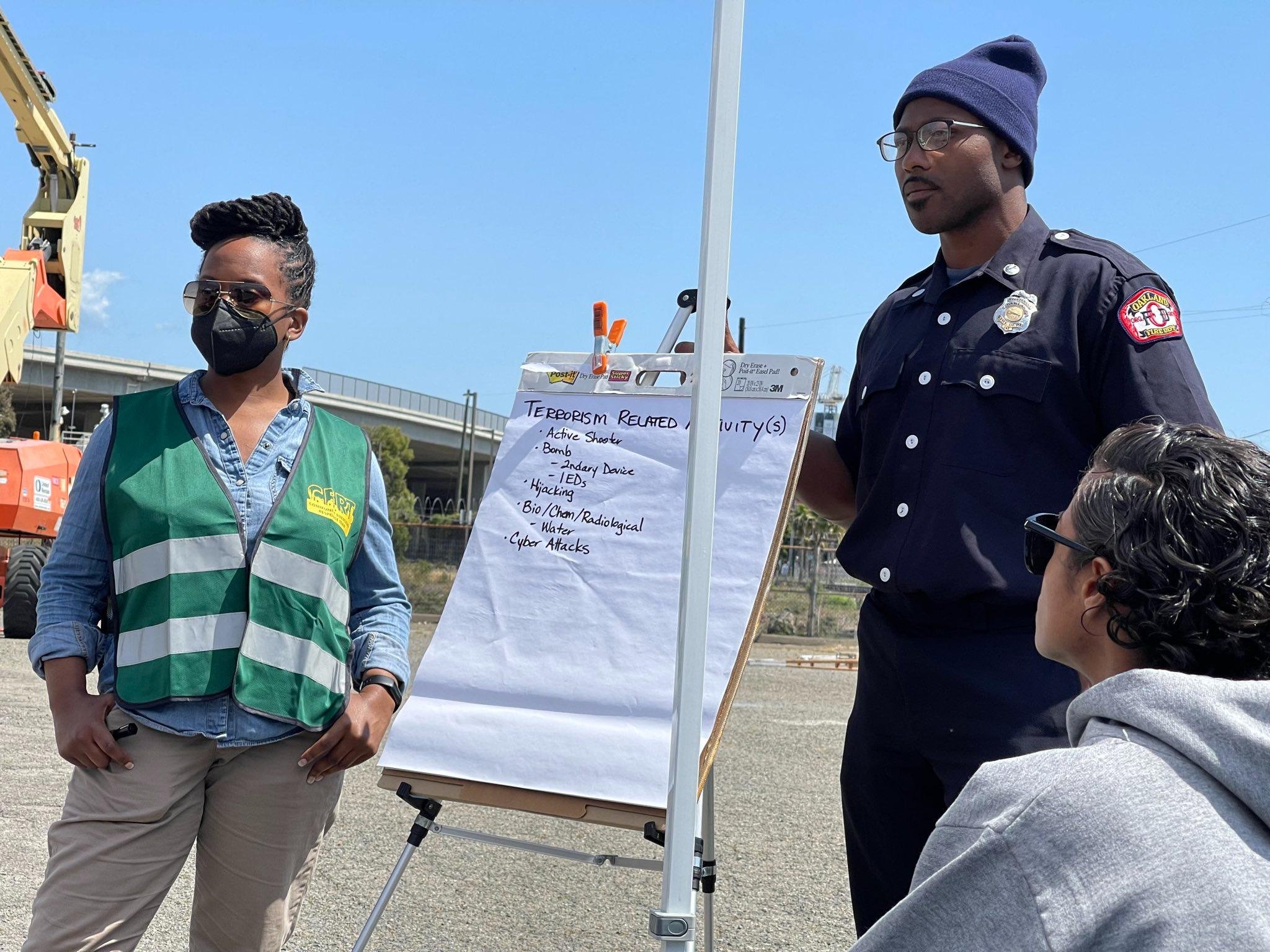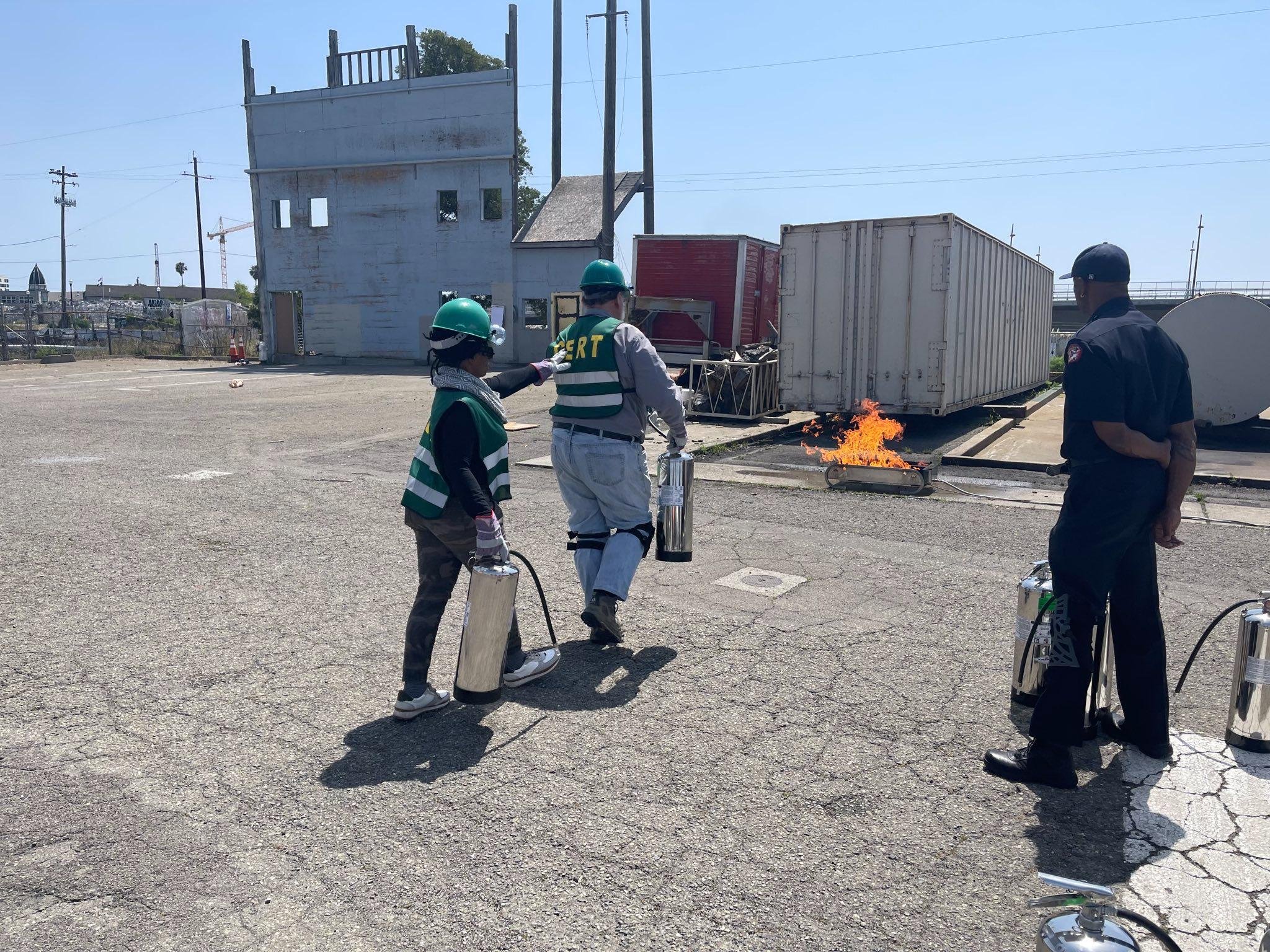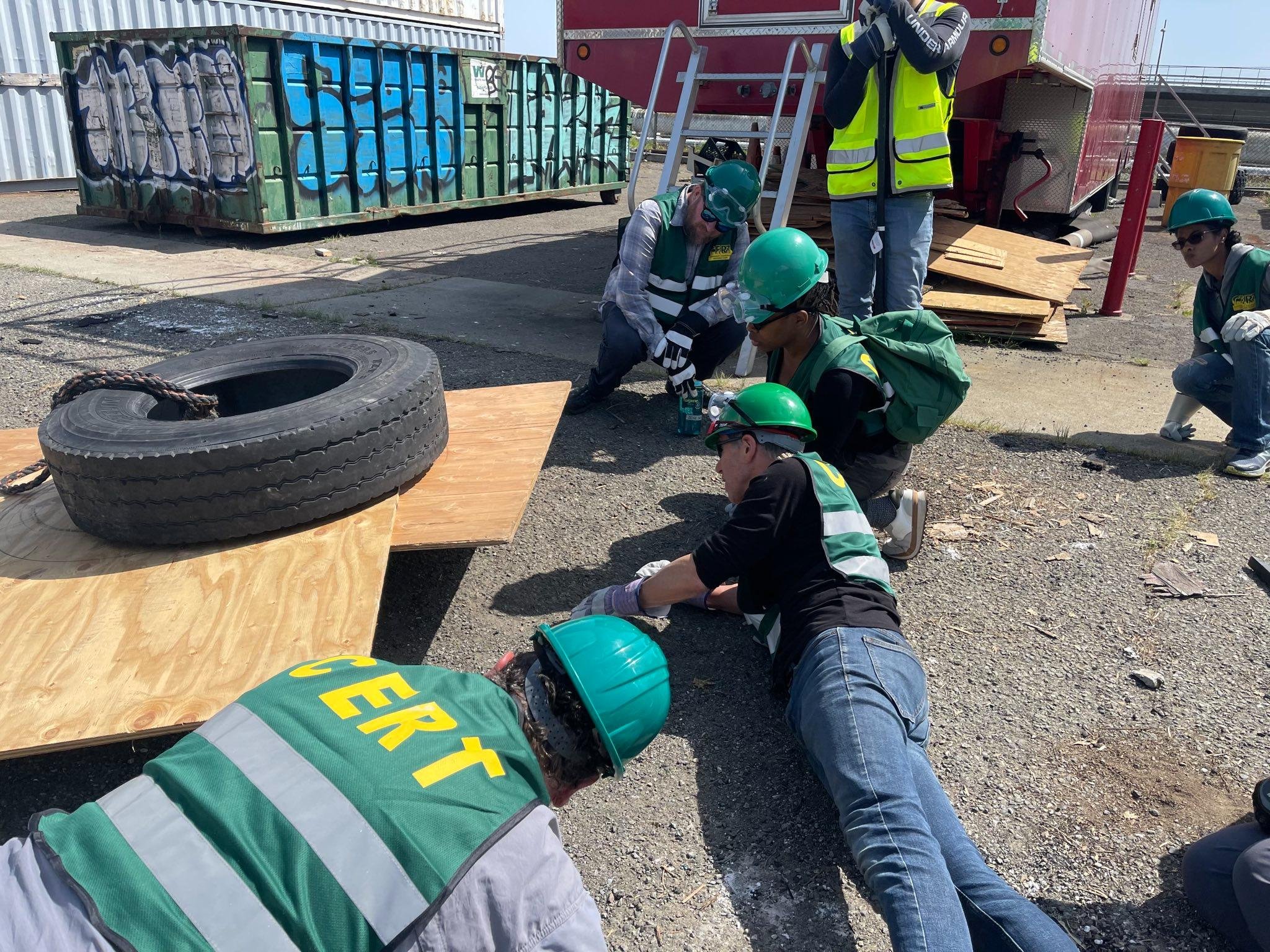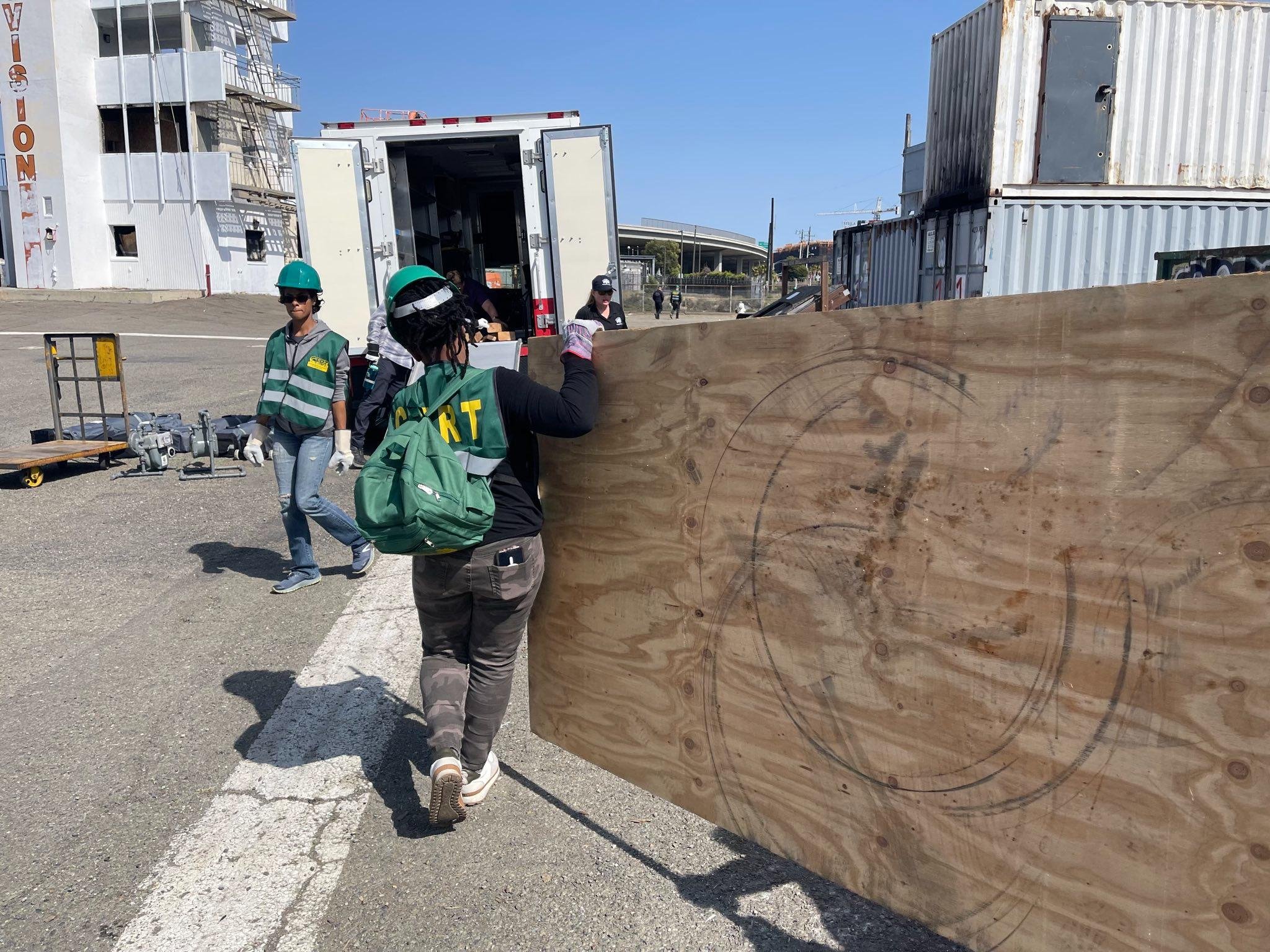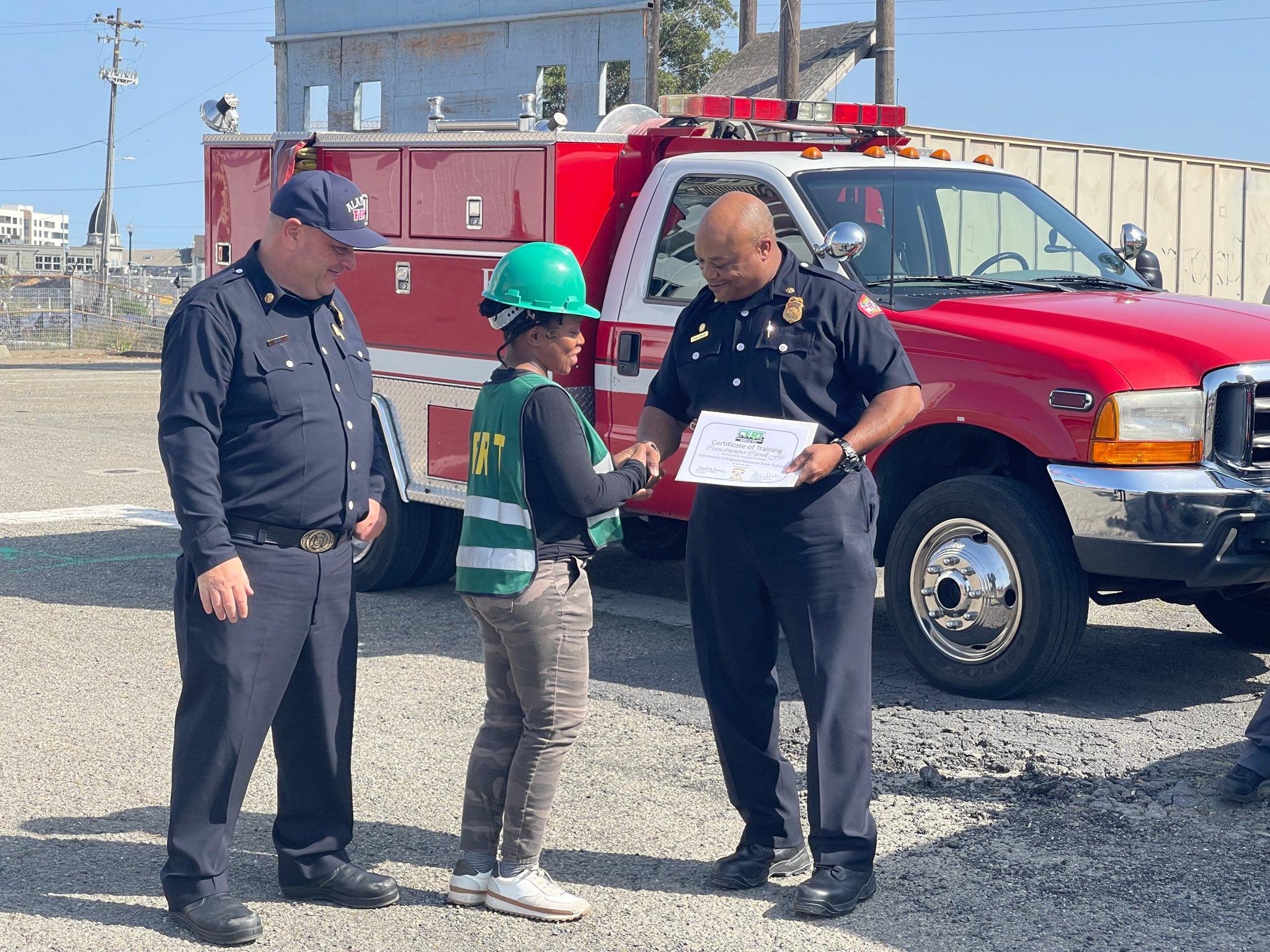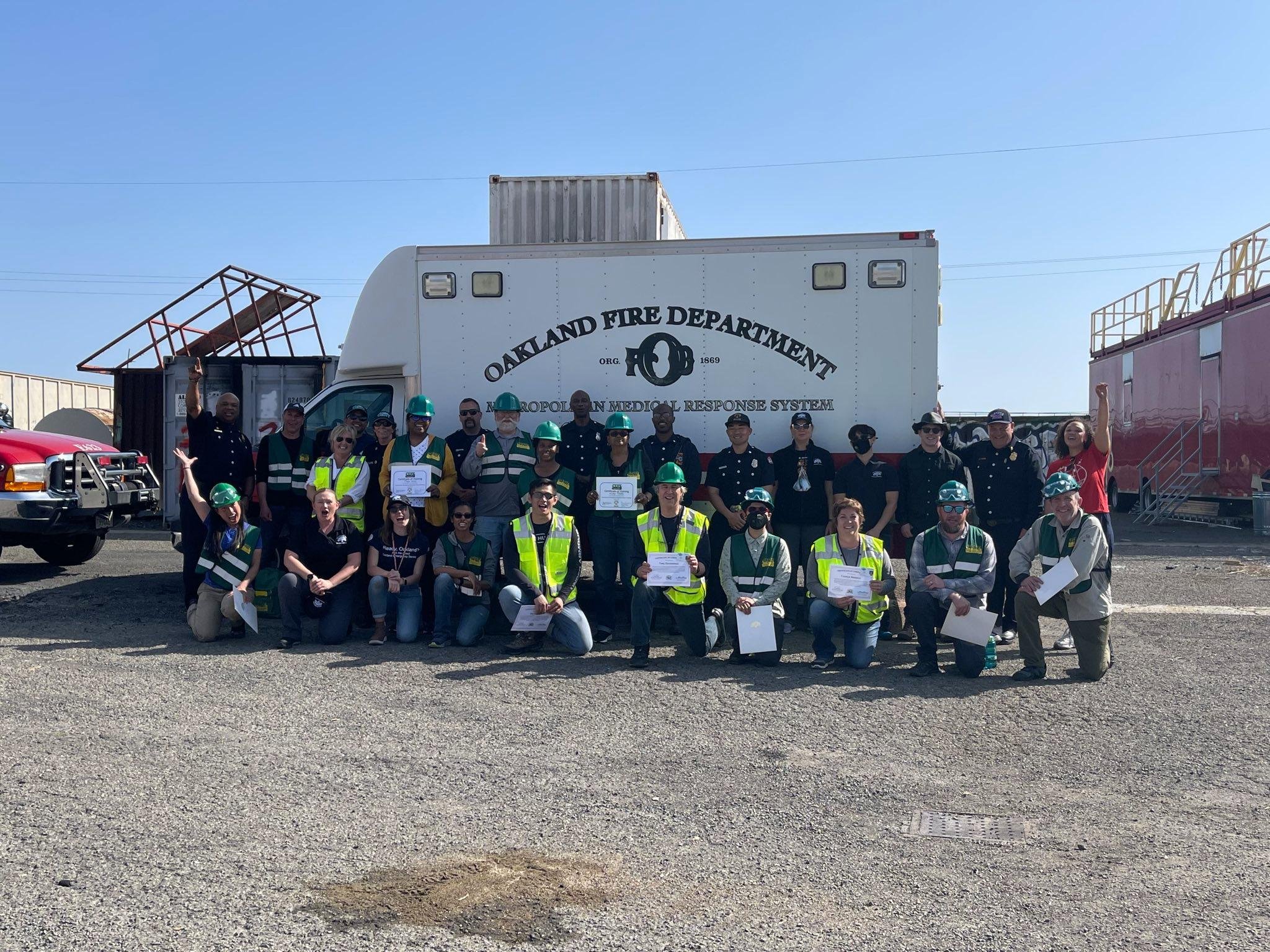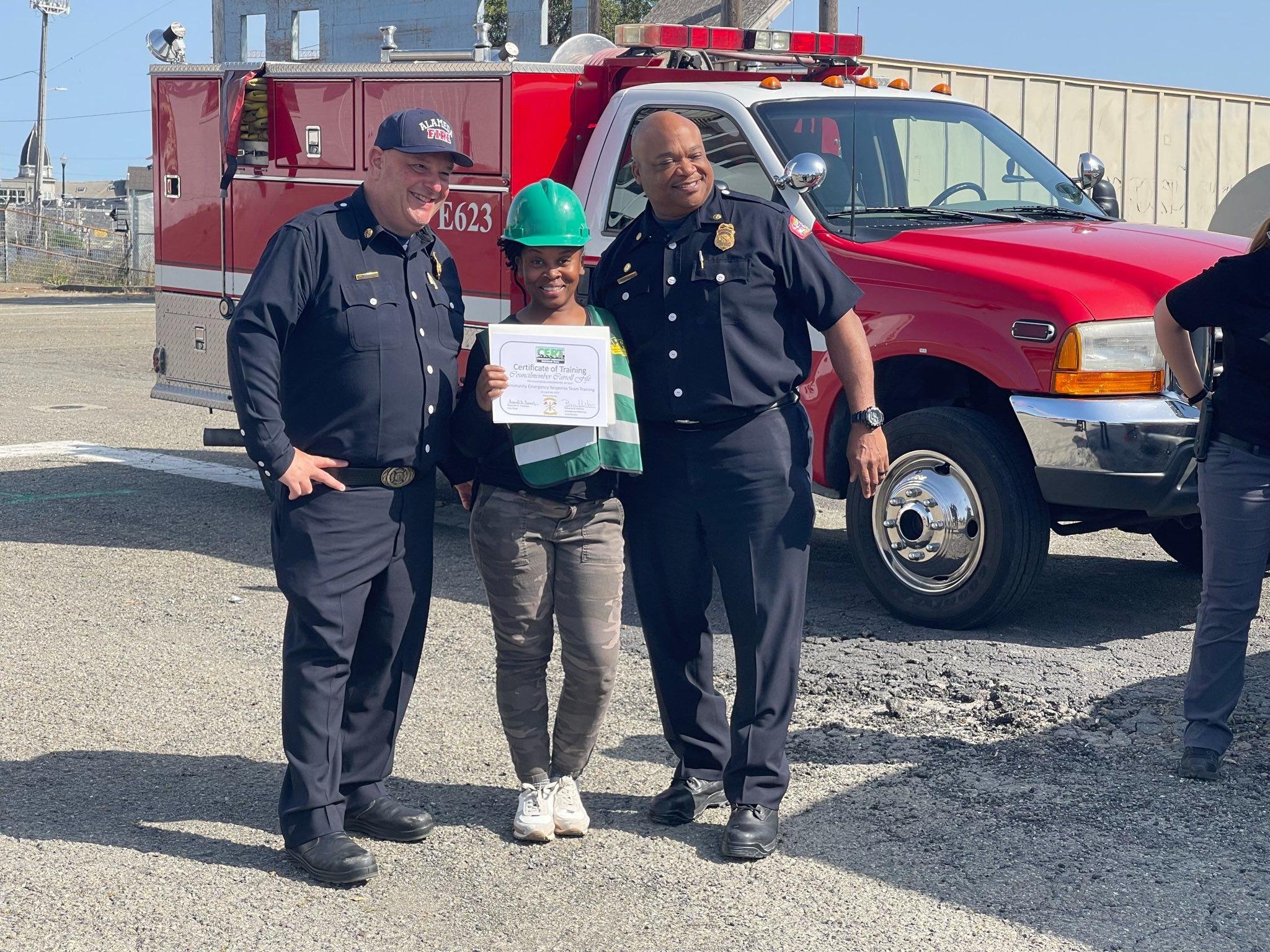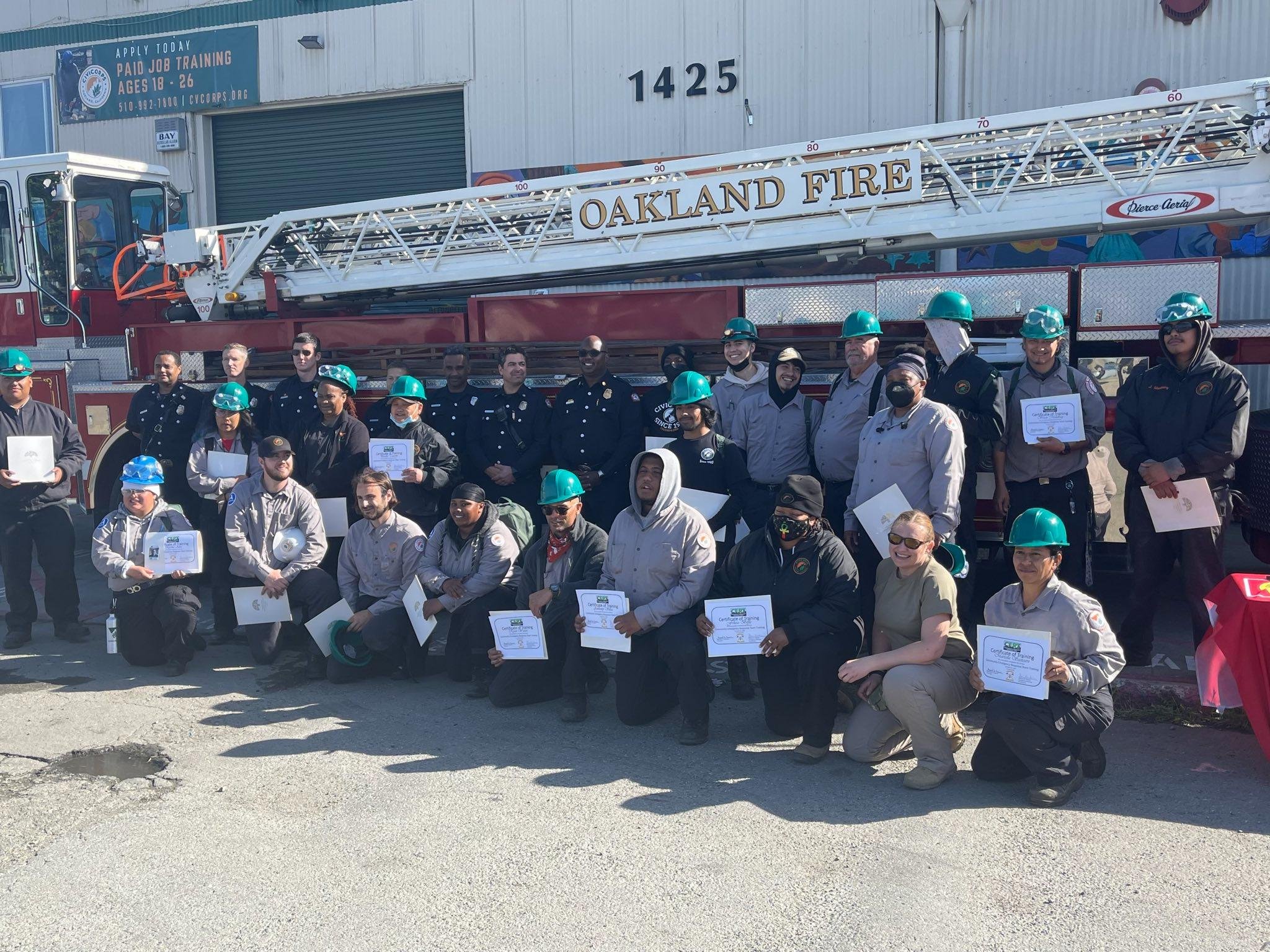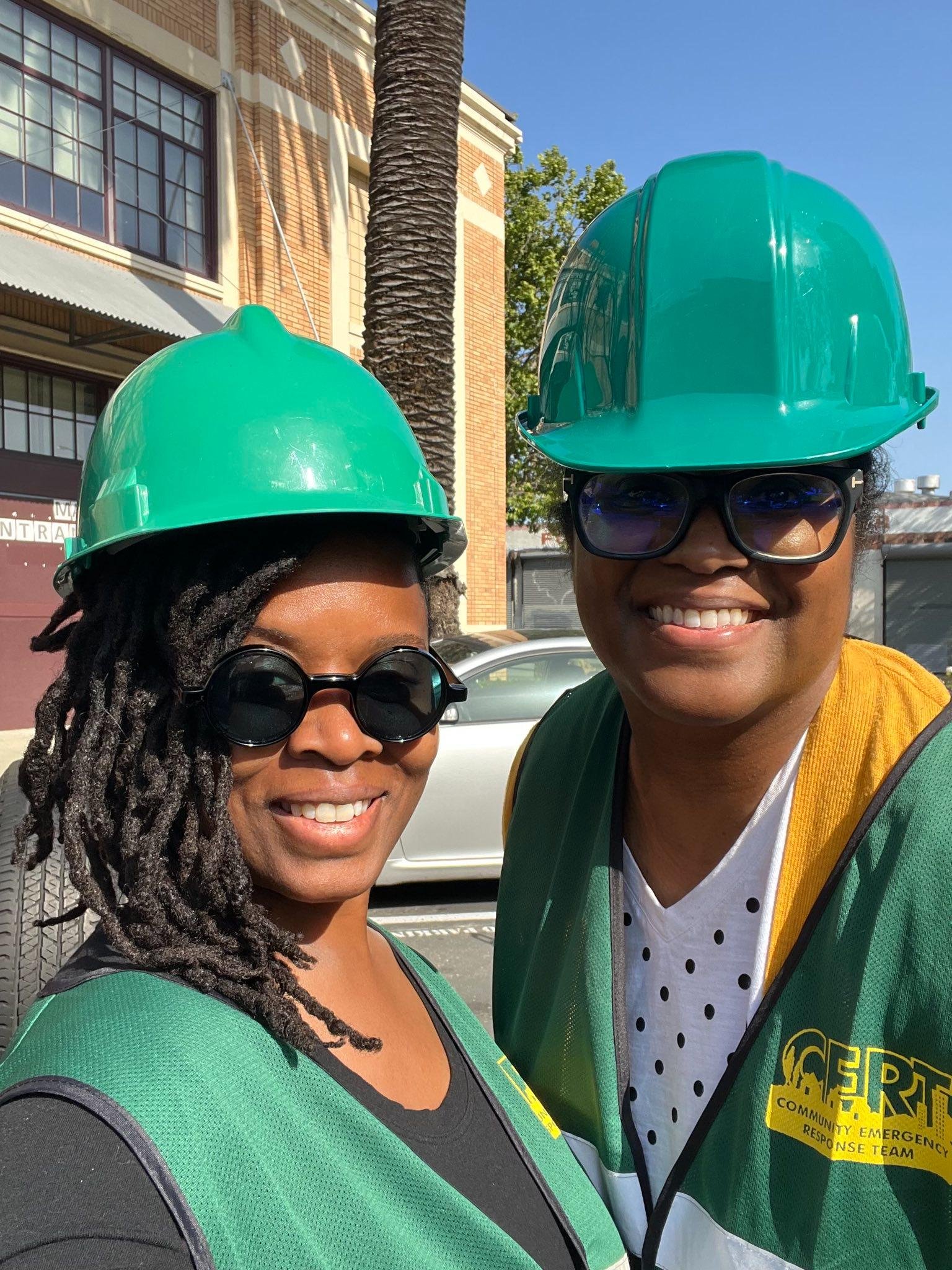April 2022
*Edited newsletter with some passed events removed
Dear friends, family, and constituents,
In this week's newsletter, I’m sharing the final spotlight from the Black New Deal Symposium, this time on the community economics session with Adrionna Fike, as well as a few community updates including the Mozaik Market opening in District 3.
As you may know by now, the Black New Deal Symposium kicked off a phase of legislative research and development that is now ongoing with the goal to address the anti-Black policy and programming that has harmed Black communities, and as a result, continues to yield outcomes that impact all Oakland residents today. My office will be continuing to engage Black Oaklanders through this process.
In Service and Solidarity,
Councilmember Carroll Fife
Items In This Newsletter
Mozaik World Market
Black New Deal Spotlights - Co-op Member Adrionna Fike Presents on Community Economics
United for Success Academy Townhall on Dangerously High Lead Levels in Fruitvale District - Thursday April 28th
In the Community - Oakland Community Emergency Response Team (CERT) Training
District 3 Updates
Oakland Mozaik World Market
If you follow me on Instagram or Twitter, you may have already seen me posting about the Mozaik World Market beginning to open up at the former Community Food location. The Oakland Mozaik World Market is an initiative being spearheaded by the District 3 office to address the call from community members for increased opportunities for residents to socialize as well as for artists, creatives and entrepreneurs to generate revenue to ameliorate the impacts of Covid.
Many popular D3 businesses shuddered and many workers lost jobs during the pandemic. Mozaik World Markets seeks to create space for low barrier vending opportunities over the Spring and Summer months. Mozaik World Markets will create venues throughout District 3 for neighbors and vendors to come together to experience the rich diversity of art, culture, food and more. Some images below from the mural unveiling on Saturday April 16th and the soft opening last Saturday from 12-5pm.
This Sunday May 1st from 10:30am to 12pm, there will be the West Oakland Community Cleanup organized by local residents. Trash pickers, garbage bags, and vests will be provided with the clean-up ending at the current market location for lunch. If you'd like to participate, come to the intersection of Filbert Street and 24th Street at 10:30am. All are welcome!
DETAILS
Multiple District 3 markets are in the works, including ones outside of the Oakland Mozaik Market banner. One is currently operational at 3105 San Pablo.
INTERESTED IN JOINING?
Fill out this form and an organizer will be in touch! And please share this form with others who you think might be interested.
The Black New Deal Spotlight
2. Co-op Member Adrionna Fike Presents on Community Economics
Mandela defines community as a group of human and non-human beings with the common interest of living in a particular area. Economy, and economics, is about how we organize our relationships and priorities in that area. At its core, economics is about how we take care of our home, our area, and how we take care of each other. Cooperative community economics is the lens set that we see through.
For us at the grocery cooperative, it's about increasing access to healthy food, meaningful work, and economic democracy on a neighborhood scale, in solidarity with cooperators around the world. At Mandela, we are a really diverse team, one image of us showing grandparents, a mother to be, formerly incarcerated peoples, artists, and students. What we all share in common is a deep love and commitment for community, for food access, and for economic justice.
Why worker cooperatives?
Worker cooperatives are owned and democratically governed by their members, our members, the workers. Worker cooperatives provide wages and benefits above industry averages across the board. We develop leadership and management skills for our members, workers, owners, and we build wealth for low- to moderate-income community members.
The governance directions we follow
Our governance documents include bylaws that were established and created by the founding members of Mandela. Three of the points in particular discuss the financial aspects of our business, about learning how to own and run our business. This includes point 1.6, to understand the business, financial statements, how they tie into operations, and how to use them to plan for strategic growth.
Next, to always improve and tighten operations and lower costs. This is key. We're not so much driven and focused on profit, we're focused on tightening our operations and lowering costs. As owners, each of us knows every single item in that store, not only as a point of customer service, but also the pricing, the vendors, and the alternatives. As a result, during the pandemic, we were able to be nimble because we were able to access substitutes and alternatives for things that would be out of stock. Finally, to intimately know how to own and operate all aspects of a grocery store which are very specific.
We are able to follow through with our social imperatives for mutual aid, cultural unity, mental wealth, and ultimately be a resource in the community and enrich lives as expressed in point 1.9, if we make sure that those three highlighted points are intact and always in motion to improve.
Mutual aid and supporting community
Our service ethic is deeply rooted in our continual understanding and learning of our history and the legacy from which we come. Cooperative legacy, survival, and mutual aid play a deep role in how we serve the community. People typically don't think of businesses, for-profit businesses, as also being sources of mutual aid, but we do this as an imperative within our governing documents, as well as meeting our economic goals.
One of our ongoing initiatives started at the beginning of the pandemic and is called Sunday Service. Sunday Service happens every other Sunday, we go into the store on our days off and talk, share recipes and make food for at least fifty of our houseless residents. We upcycle food as part of our initiative to have zero food waste. We fund Sunday Service partly through a physical karma jar on our cash register area and one that is online, where people give money towards paying for these meals.
Another initiative we're working on involves organizing with Acorn residents to help them regain access to unused common areas in their development. They want to start a buying club and they have the intention to incorporate that buying club over time to be an Acorn resident controlled cooperative grocery store. There is a community room onsite that has been vacant and unused for years while the residents have no access to it. We're organizing and planning how they can regain access to that space in order to host hyper local community economic activity for food security.
Oakland is a hub for worker cooperatives
In 2015, there was a big movement for a City of Oakland resolution to support worker cooperatives. There was a resolution with ayes from all of the city council members, but nothing came of it. We're currently working with our network to look into this and put this resolution back on the table.
Despite this, Oakland is a hub for worker cooperatives and worker cooperative developers. There is a high concentration of worker cooperatives in Oakland as well as Berkeley and San Francisco. Oakland is home to California's first worker cooperative academy at Laney College, which Mandela was a part of. Oakland is the headquarters for the US Federation of Worker Cooperatives, The Democracy at Work Institute, the Sustainable Economies Law Center, Project Equity and the Arizmendi Association of Cooperatives. We have the leading cooperative developers in the country right here at home in Oakland. We are well situated to develop the expertise at the city level to promote and ensure the development of worker cooperatives as an economic development strategy.
What do worker cooperatives need to flourish?
Quality co-op education that is specific to the businesses and the industries that the coops are in. Generalized business consulting does not work, particularly for a grocery store in a neighborhood of food apartheid.
Alternative financing, ideally non-extractive financing
Comprehensive support from stable institutions
How are we going to fund that?
Through a progressive business tax. Currently there is a progressive big business tax that hopefully will be on our ballot in November. And if placed on the ballot and approved by us, it is expected to raise an additional, at least on the lower end, $30 to around $32 million for the city.
Detailed recommendations to support community economics by NoBAWC
Significant revenue be used to support small business loans initiatives i.e Berkeley and other cities have a revolving loan fund for worker cooperative businesses
Funding a range of initiatives that will support the attraction and the retention of worker owned businesses
Increase funding to keep commercial neighborhoods clean and welcoming in Oakland's most underserved neighborhoods. I.e if you've been to Mandela lately, you've probably seen trash and anchored on the corner are two empty commercial spaces. We need more love over there and sometimes love looks like more trash cans, more services, attention and care.
Make the commercial retail spaces more accessible and affordable for youth-led ventures and also low-income entrepreneurs in underserved neighborhoods.
Some co-op specific use of public funding that the city could promote
Promote worker cooperatives as a business model through outreach and education
Facilitate succession planning among businesses with retiring owners, including sale to workers as an exit strategy. We're in the midst of a silver tsunami where a lot of baby boomers are retiring. As a result, there is a wave of businesses closing and instead of closing historic businesses, they could opt to sell the business to the workers as an exit strategy.
Create markets for worker cooperatives by giving preferences to cooperatives, such as city contracting and purchasing.
Invest in worker cooperatives through grants to cooperative incubators and offer low interest loans to finance cooperative startups
Streamline the regulatory processes and reduce land use fees and business taxes for newly formed worker cooperative startups and conversions.
What we can do now: support our existing Black Bay Area worker cooperatives
Three of these are in Oakland and one is in Berkeley on the border:
Mandela Grocery Co Op
The emerging Deep Grocery Co Op, who are looking for a brick and mortar space in Deep East Oakland
Alchemy Collective Cafe and Roaster in South Berkeley, they are a black trans coffee roaster and cafe a
The East Bay Permanent Real Estate Cooperative that recently purchased Esther's Orbit Room
Events
3. United for Success Academy Townhall on Dangerously High Lead Levels in Fruitvale District - Thursday April 28th
Sixth-grade students from United for Success Academy (UFSA), a Title 1 public middle school in East Oakland, are leading a community town hall on lead-contaminated soil in the Fruitvale District. The students are part of Frontline Catalysts’ Climate Justice Leadership Development program, which is being taught as a year-long elective for 6th-graders and as an afterschool program for grades 6-8.
Their community science project found lead levels as high as 997 parts per million in Fruitvale. California’s health standard for resident soil is 80 parts per million. High lead levels can have major health impacts on brain development in children under 6. This can lead to learning and behavior problems as they grow.
You can join this townhall in-person and I will also be livestreaming the townhall on my Facebook, Twitter or YouTube pages. Join us either way!
WHERE: United for Success Academy Auditorium 2101-35th Avenue, Oakland, CA 94601
WHEN: 5-7 pm, Thursday, April 28th, 2022
In The Community
This past weekend I finished the Oakland Community Emergency Response Team (CERT) training. I learned a lot about how to be a responder during a city-wide emergency. I highly recommend it to anyone who is interested in learning the basic skills to employ during an emergency of this scale. The training is a 4-week hybrid training course and is open to all residents. You can learn more by visiting the website here.
A special shoutout to Civicorps- which had their supervisor leads take the CERT training course in order to help train fellow graduates. My office is supporting the possibility of creating a custom version of this training program for unhoused residents, if you know communities who might be interested, reach out to my office at district3@oaklandca.gov

